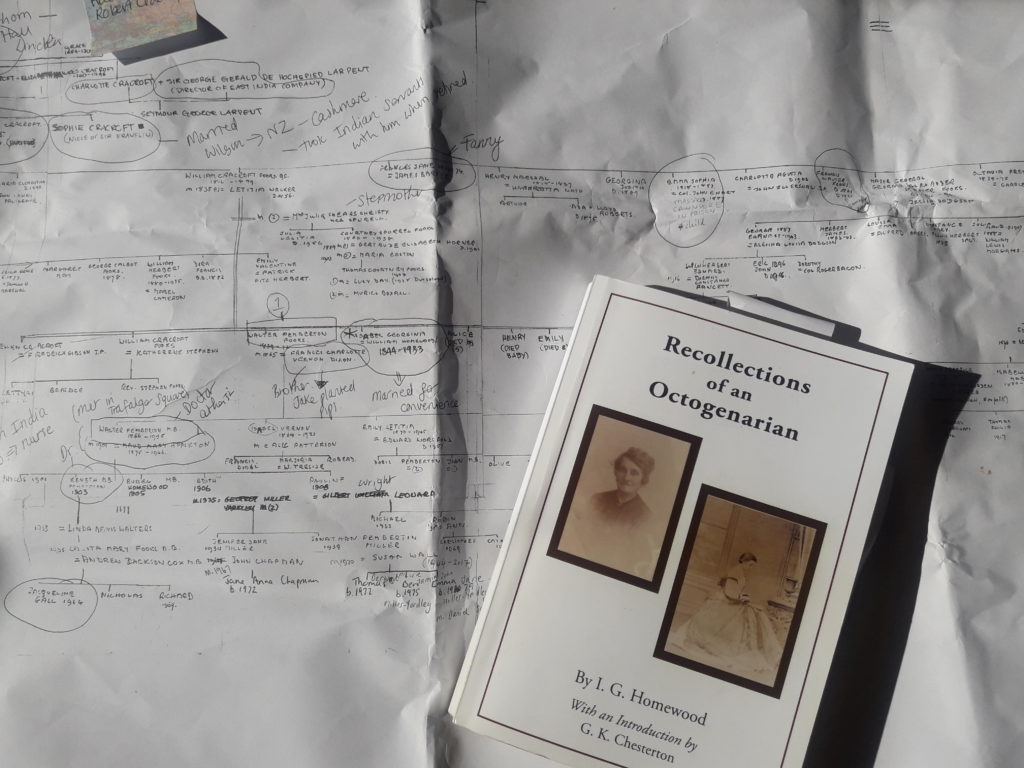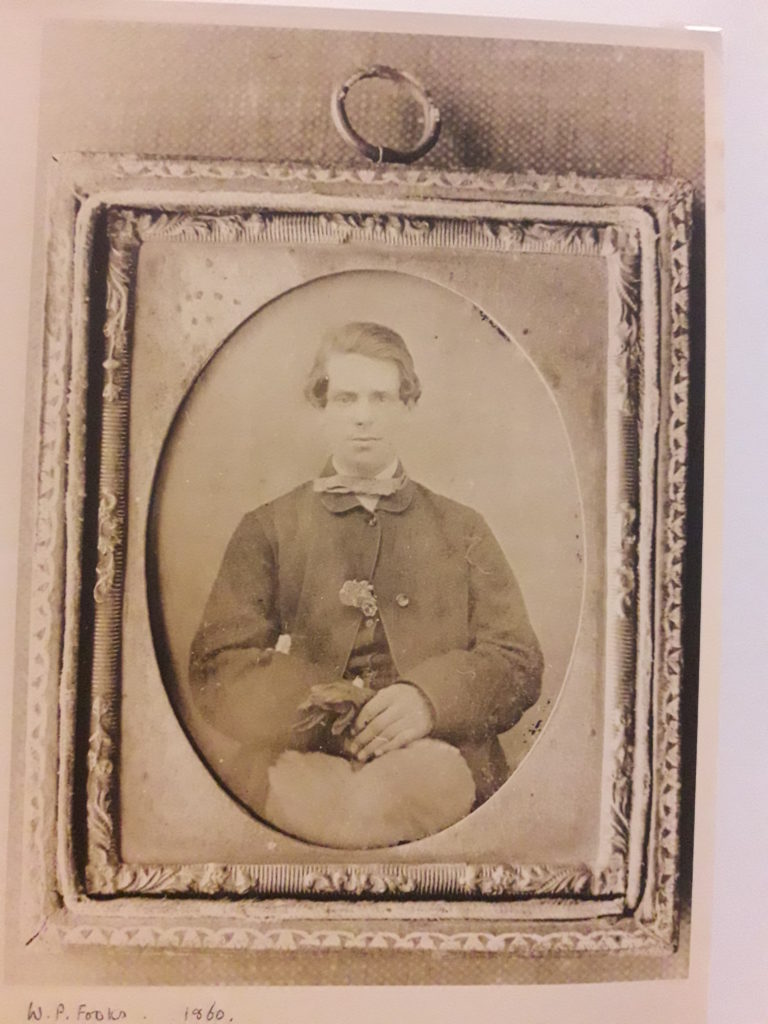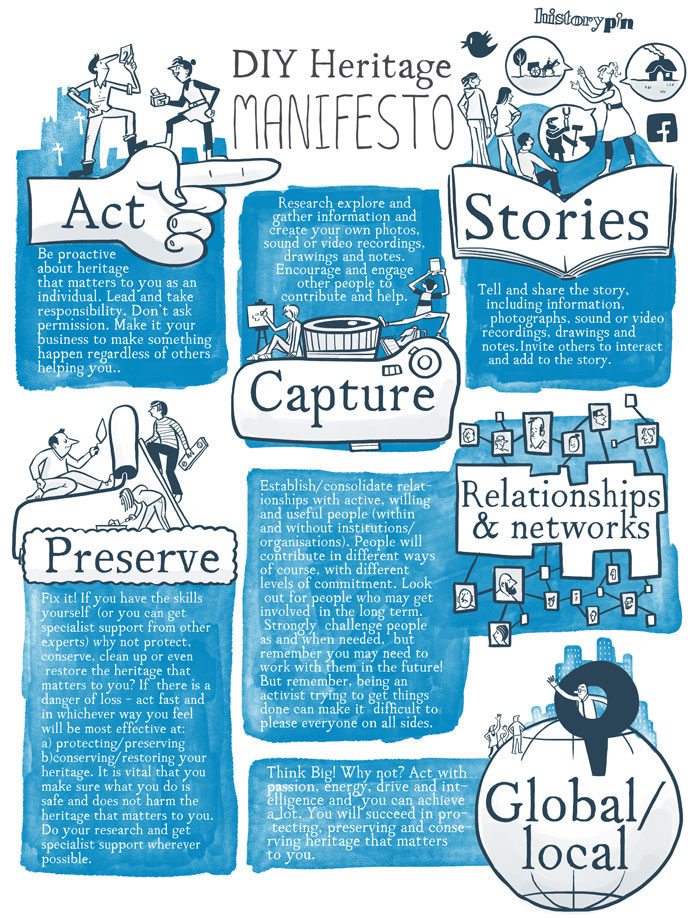-
Family history matters (Weekly blog, 23 September 2018)
Posted on September 23, 2018A blog by Catherine Leonard, INTO Secretary-General
Family history
I spent this weekend talking with cousins about “Recollections of an Octogenarian”, the memoires of our great, great, great aunt. Like all good book clubs, part of the joy was simply in being together. But unlike many, which can easily morph into purely social events, we kept on topic. We have dissected the writings of Isabel Homewood. We have read original letters from her brother, Walter Pemberton Fooks, our great, great grandfather who died in 1873. Moreover we have pored over the family tree. We did also manage a few bottles of wine and some nice meals but we remained focussed. And it has been well worth it.

Pioneering spirit
I could write for hours about this amazing, fearless lady and her travels. Born into London society in 1844, she lived in New Zealand for several years after her marriage. Her depiction of pioneer life is fascinating but she returned to England in the early 1870s. Then in 1894, she took up cycling at the age of 50. She proceeded to cycle around the world: France, Italy, Spain, Portugal, Norway, Sweden, Denmark, Germany, Poland, Hungary, Russia, USA, Canada, Fiji, New Zealand, Australia, …. 13,000 miles in the first year! That’s probably a whole other blog.
DIY history and heritage
But what particularly struck me about the weekend was our ability to create our own history. Our family is lucky in that we have quite a bit to go on. The wonderful letters and diaries of our great, great grandfather; beginning with his life at school in Thame and ending with his death in New Zealand in 1873 .And the autobiography of his extraordinary sister. Add to that a bunch of family reminiscences and all the resources one can now access so easily on the internet.
It reminded me of a twitter conversation I had this week about #DIYheritage. I have long been an admirer of the CCFU’s “Community Museums” or the hands-on approach of Rempart. I tweeted an article by Tim McClimon, President of the American Express Foundation, about connecting people with places.
The US National Trust for Historic Preservation has 3 propositions for a people-centred preservation movement:
- A people-centred preservation movement hears, understands and honours the full diversity of the ever-evolving American story. A preservation movement more firmly rooted in people can be more inclusive in the identification, understanding and protection of historic places.
- A people-centred preservation movement creates and nurtures more equitable, healthy, resilient, vibrant and sustainable communities. It recognizes that older and historic places are essential to physical and psychological health; to fostering a creative, fair, sustainable and entrepreneurial economy; to conserving land and habitat and avoiding carbon emissions (helping the planet); and to encouraging tolerance and social cohesion.
- A people-centred preservation movement collaborates with new and existing partners to address fundamental social issues and make the world better.

My Great, Great Grandfather, Walter Pemberton Fooks, in 1860
Act with passion, energy, drive and intelligence and you can achieve a lot
I said in my tweet that I thought we had moved away from some of the activism of our movement’s great founders. A colleague then shared her experiences working with the Stoke-on-Trent Potteries and introduced the DIY Heritage Manifesto.
I love it and think there is so much we could learn from and use. I love the term “community heritage activist’ and the idea of using heritage for social good. I’ve transcribed the text of the manifesto at the bottom of this blog.
So, as my cousins and I do #DIYheritage on our family tree, are there some lessons for those of us in the heritage business? I’d like to see us acting more like a (global) preservation movement. More activist, more challenging, more hands-on. More conversations about what heritage is and how to get more diverse communities involved in protecting it. Bring it on! (We’ll be talking much more about this subject at our conference next year!)
DIY Heritage Manifesto
Act: Be proactive about heritage that matters to you as an individual. Lead and take responsibility. Don’t ask permission. Make it your business to make something happen regardless of others helping you.
Capture: Research, explore and gather information and create your own photos, sound or video recordings, drawings and notes. Encourage and engage other people to contribute and help.
Stories: Tell and share the story including information, photographs, sound or video recordings, drawings and notes. Encourage and engage other people to contribute and help.
Preserve: Fix it! If you have the skills yourself (or you can get specialist support from other experts) why not protect, conserve, clean up or even restore the heritage that matters to you? If there is a danger of loss – act fast and in whichever way you feel will be most effective at a) protecting/preserving b) conserving/restoring your heritage. It is vital that you make sure what you do is safe and does not harm the heritage that matters to you. Do your research and get specialist support wherever possible.
Relationships and networks: Establish/consolidate relationships with active, willing and useful people (within and without institutions/organisations). People will contribute in different ways of course, with different levels of commitment. Look out for people who may get involved in the long term. Strongly challenge people as and when needed, but remember you may need to work with them in the future! But remember, being an activist trying to get things done can make it difficult to please everyone on all sides.
Global/local: Think Big! Why not? Act with passion, energy, drive and intelligence and you can achieve a lot. You will succeed in protecting, preserving and conserving heritage that matters to you.
With thanks to Karen Brookfield, Heritage Lottery Fund, Potteries Tile Trail and the University of Leeds

 44 (0)20 7824 7157
44 (0)20 7824 7157